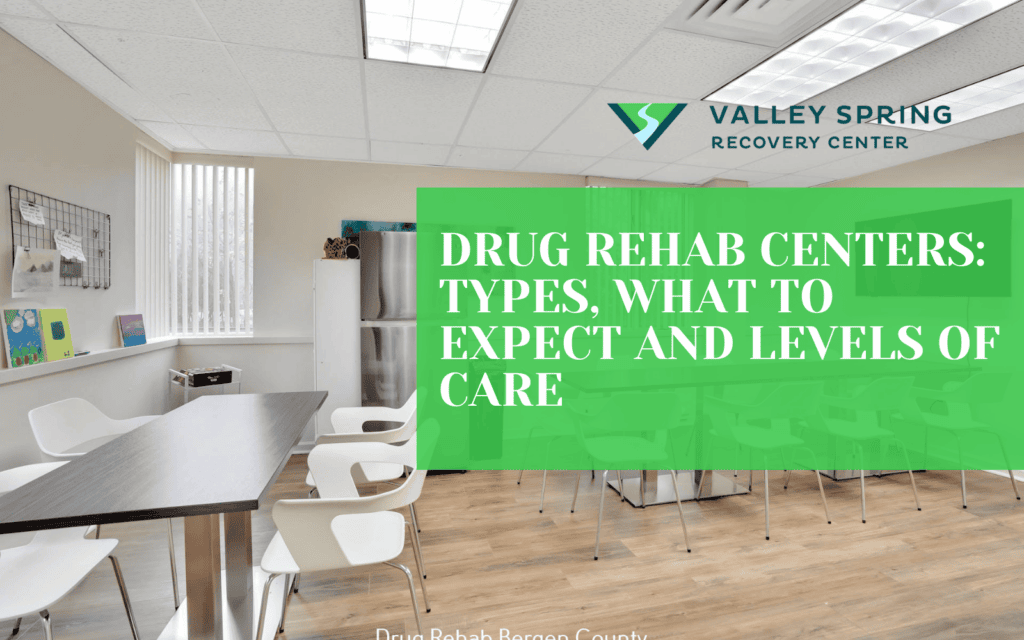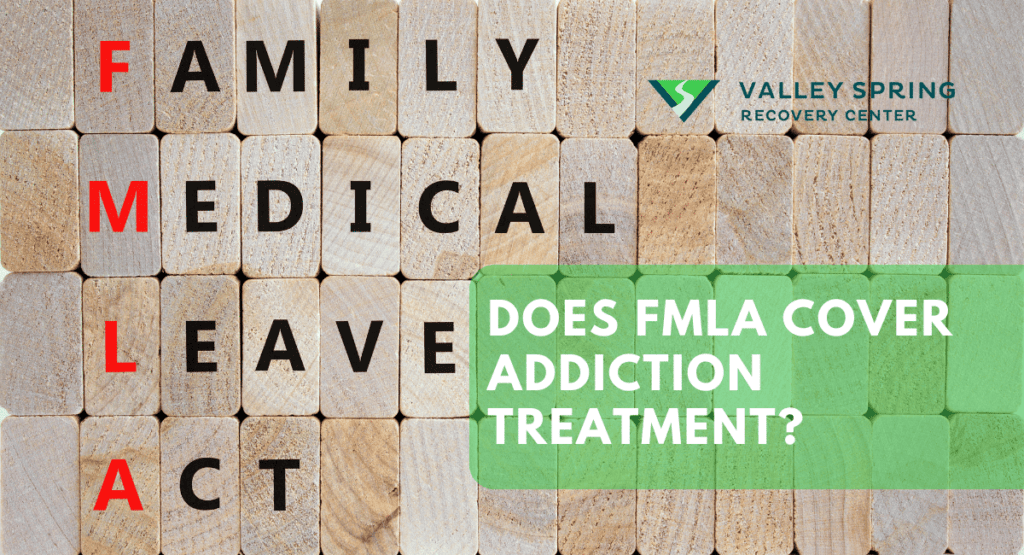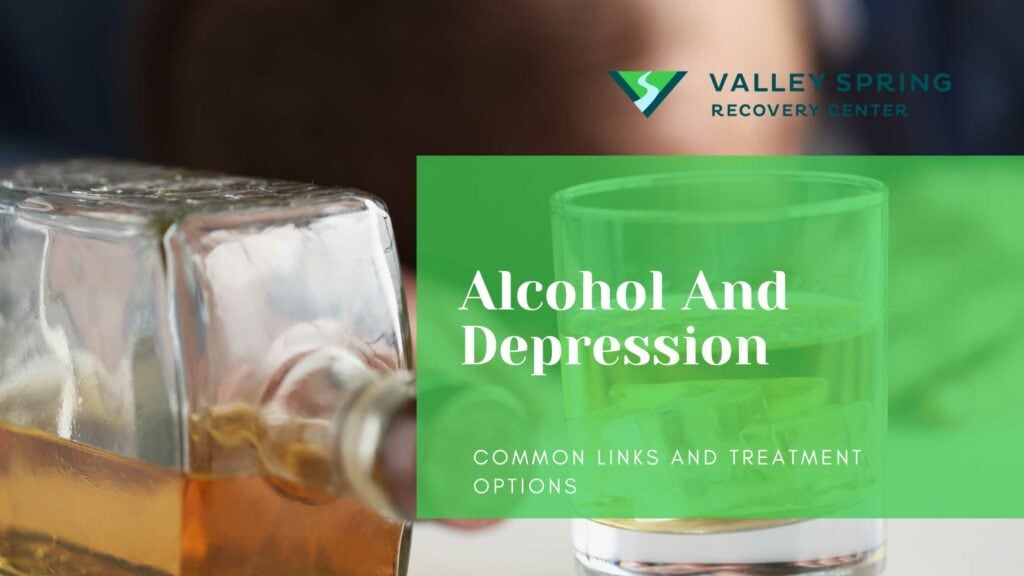When considering entering a drug and alcohol rehabilitation center, it’s essential to be aware of the various types of programs available, what to expect from them, and the different levels of care they offer. Rehabilitation centers are crucial in helping individuals cease the use of harmful substances and facilitate their journey back to health and productivity across physical, mental, and emotional dimensions.
Rehabilitation facilities vary widely in terms of amenities, focuses, and treatment intensities to ensure each program is customized to meet the specific needs of each individual. These include inpatient facilities where patients reside during their treatment, outpatient programs that accommodate patients’ daily routines, and specialized treatments targeting specific substances or concurrent mental health issues. Each type of center uses distinct protocols and therapeutic approaches to provide varying intensities of care.
Selecting the right rehab center is a decision that should consider the severity of the addiction, any underlying mental health issues, practical aspects such as location and cost, and insurance coverage. The right choice is crucial as an unsuitable program can increase the risks of relapse, add financial burdens, and exacerbate mental health conditions. Therefore, a thorough understanding of the different rehab options and their levels of care is vital for effective recovery.
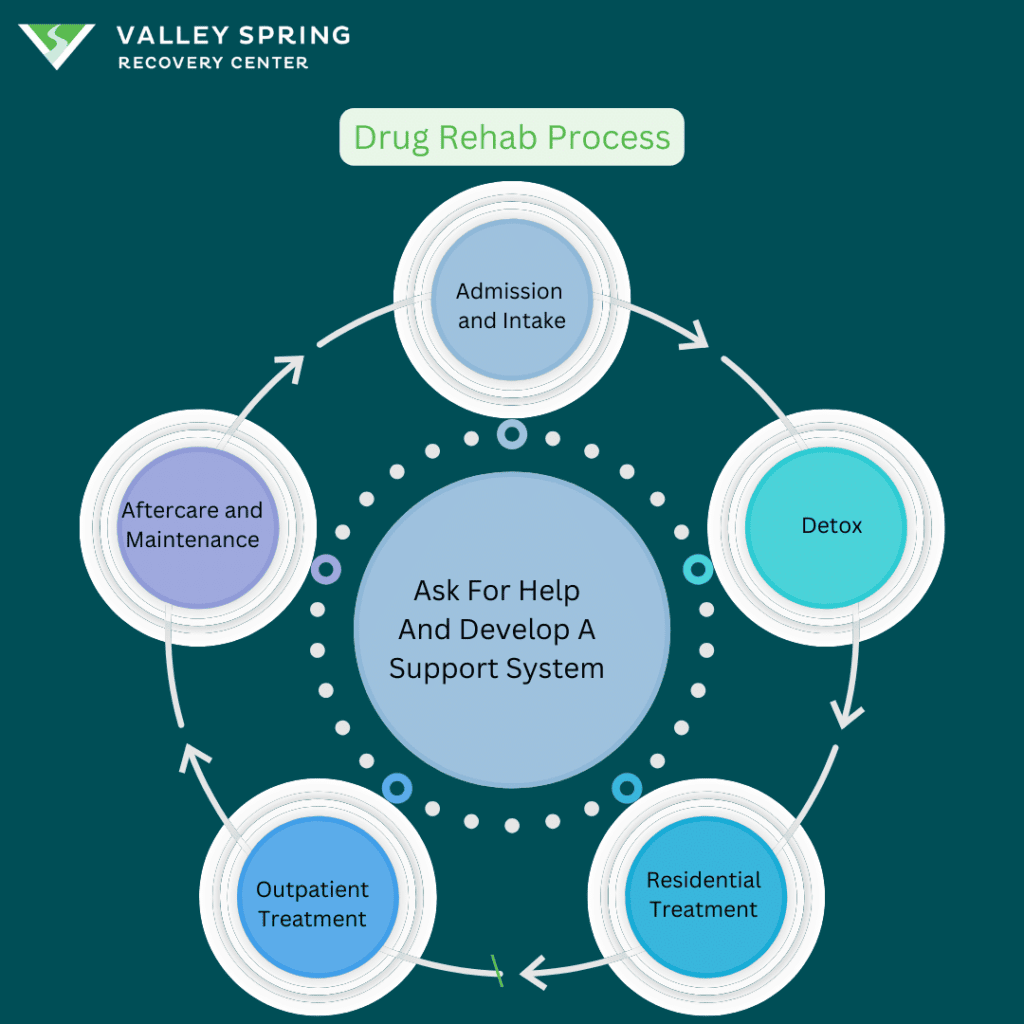
What Is A Drug Rehab Center?
A drug rehab center is a facility dedicated to the treatment and recovery of individuals suffering from addiction to drugs and/or alcohol. Rehabilitation for substance use disorder involves a carefully crafted process that combines medical treatment and psychotherapy to help individuals cease substance use and address underlying issues contributing to their addiction. The goal of rehabilitation is to equip individuals with the tools and strategies necessary to manage their disorder on a long-term basis, improving their overall quality of life by mitigating comorbid symptoms essential to maintaining sobriety.
There are different types of rehab centers that accomodate different levels of substance use disorder severity and comorbidities. For instance, if an individual is actively addicted to heroin, they will have physical withdrawal symptoms which require the type of medical care that is administered in a residential rehab center which is different from marijuana addiction which does not have severe effects on the body and could be treated with counseling in an outpatient rehab program.
Effective addiction treatment centers provide a variety of individualized treatments that target both the physical and psychological aspects of addiction, leading to holistic recovery.
What Are The Steps To Get Into Rehab?
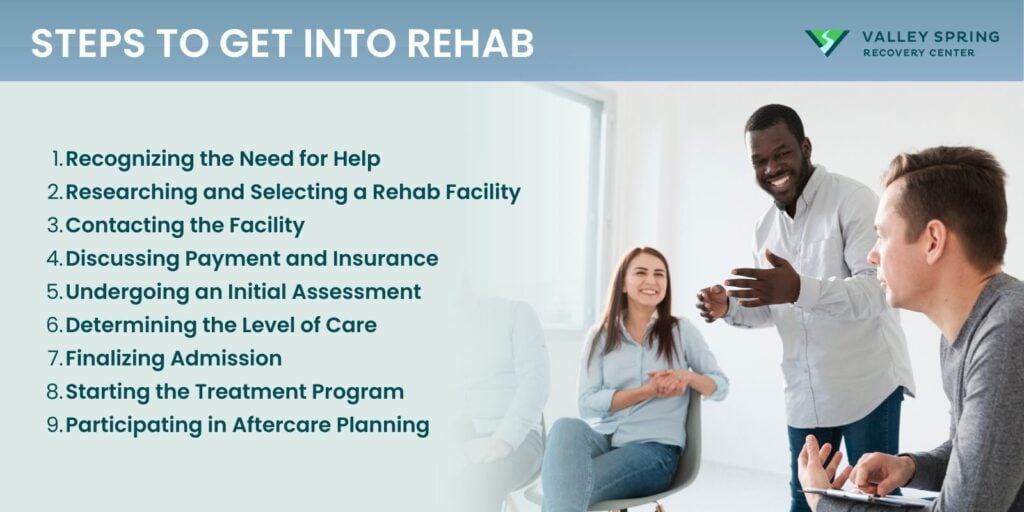
1. Recognizing the Need for Help: The first step in the journey to recovery is acknowledging the need for assistance with a substance use disorder. This can be self-motivated or encouraged by loved ones.
2. Researching and Selecting a Rehab Facility: Choosing the right rehab facility involves researching various treatment centers to find one that matches your specific needs, such as the type of substance use disorder, preferred treatment approach, location, and insurance compatibility. This step may include reading reviews, consulting with healthcare professionals, and discussing options with family or support networks.
3. Contacting the Facility: Once a facility has been chosen, the next step is to contact them to start the admissions process. This typically involves discussing your situation with an admissions counselor, who can provide information about the program, answer questions, and guide you through the initial paperwork.
4. Discussing Payment and Insurance: Before proceeding with the assessment, it is important to discuss payment options and insurance coverage. The rehab facility’s admissions team will help you understand the costs involved, what your insurance may cover, and any available payment plans or financial assistance programs. Ensuring that you can afford the treatment or have the necessary coverage is crucial before committing to a program.
5. Undergoing an Initial Assessment: During the admissions process, you will undergo a comprehensive assessment that includes a review of your medical history, mental health status, and substance use details. Accurate and complete information is crucial as it helps the treatment team develop a personalized treatment plan. Assessments may be conducted over the phone, online, or in person, depending on the facility’s protocol.
6. Determining the Level of Care: Based on the initial assessment, the treatment team will recommend the most appropriate level of care. Options may include outpatient treatment, which allows you to live at home while attending therapy sessions several times a week, or inpatient (residential) treatment, where you reside at the facility to receive intensive care. This decision is influenced by the severity of the addiction, any co-occurring disorders, and personal circumstances.
7. Finalizing Admission: After the assessment and determination of the appropriate level of care, the next step is to finalize the admission. This may involve completing additional paperwork, discussing financial arrangements (including insurance coverage and payment options), and preparing for entry into the program.
8. Starting the Treatment Program: Once admitted, you will begin your tailored treatment program, which typically includes a combination of medical detox (if necessary), individual and group therapy, educational sessions about addiction, and support for mental health issues. The goal of treatment is not only to overcome substance use but also to build a foundation for long-term recovery.
9. Participating in Aftercare Planning: Before completing the treatment program, staff will help you develop an aftercare plan to support ongoing recovery. This plan might include ongoing therapy, support groups, and potentially additional services like vocational training or educational assistance.
What Is the Environment Like in Substance Use Disorder Rehab?
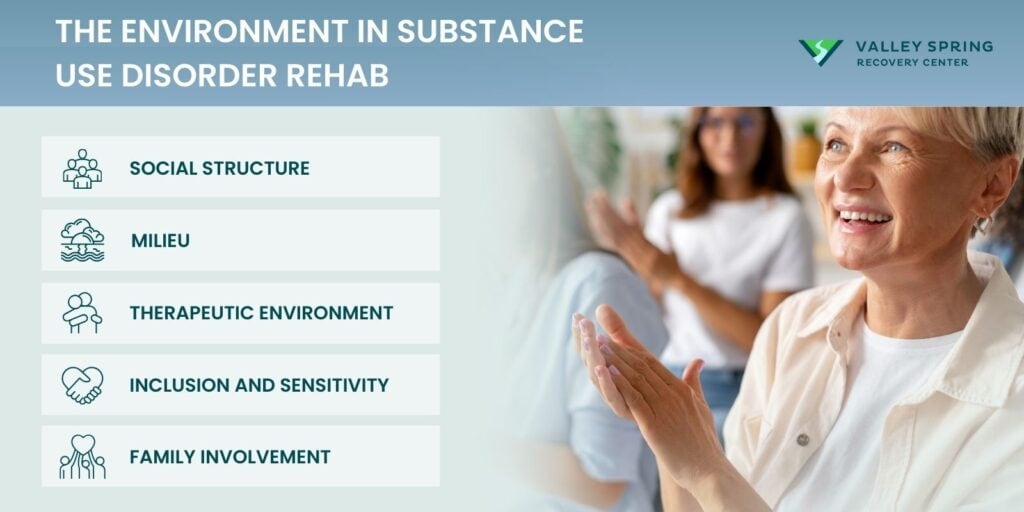
The environment in a substance use disorder rehab facility is carefully crafted to support recovery and promote overall well-being. This environment encompasses both the social structure and the milieu of the rehab setting, each playing a crucial role in the therapeutic process.
Social Structure: The social structure of a rehab facility is designed to provide a stable and supportive framework for recovery. It includes a clear hierarchy and defined roles for both staff and clients, which help maintain order and facilitate effective treatment. Staff roles range from medical professionals and therapists to support staff, all working cohesively to deliver comprehensive care. Clients may also take on roles, such as peer supporters, which foster responsibility and engagement within the community.
Milieu: The milieu, or the physical and emotional setting of the rehab, is structured to reduce stress and remove distractions that could impede recovery. Facilities are typically designed to be welcoming and calming, with comfortable living areas, private spaces for therapy, and communal areas for group activities. The layout is intended to promote peace and tranquility, often incorporating elements of nature or soothing aesthetics to help clients feel secure and relaxed.
Therapeutic Environment: Rehab centers emphasize a therapeutic environment that extends beyond physical spaces to include the culture and community within the facility. This involves fostering a supportive community where clients are encouraged to engage with each other in a positive and healing manner. Group sessions, communal dining, and shared recreational activities help build this sense of community, allowing clients to support each other’s recovery journeys.
Inclusion and Sensitivity: Cultural sensitivity and inclusiveness are key aspects of the environment in rehab centers. Treatment approaches are adapted to respect and incorporate the diverse backgrounds of clients, including considerations for different cultural, spiritual, and personal values. This inclusiveness ensures that all clients feel respected and that their individual needs are addressed, which is essential for effective treatment.
Family Involvement: Family involvement is often an integral part of the environment in rehab facilities. Many centers offer family therapy sessions and educational programs to help family members understand the nature of addiction and learn how to support their loved ones in recovery. This not only aids the client’s treatment but also helps heal and strengthen family relationships, which can be crucial for long-term recovery.
Overall, the environment in a substance use disorder rehab facility is multifaceted, combining a well-structured social framework with a nurturing physical and emotional setting. This comprehensive approach helps address the complex needs of individuals in recovery, providing them with the necessary support to overcome addiction and rebuild their lives.
What Are The Features Of A Drug Rehab?
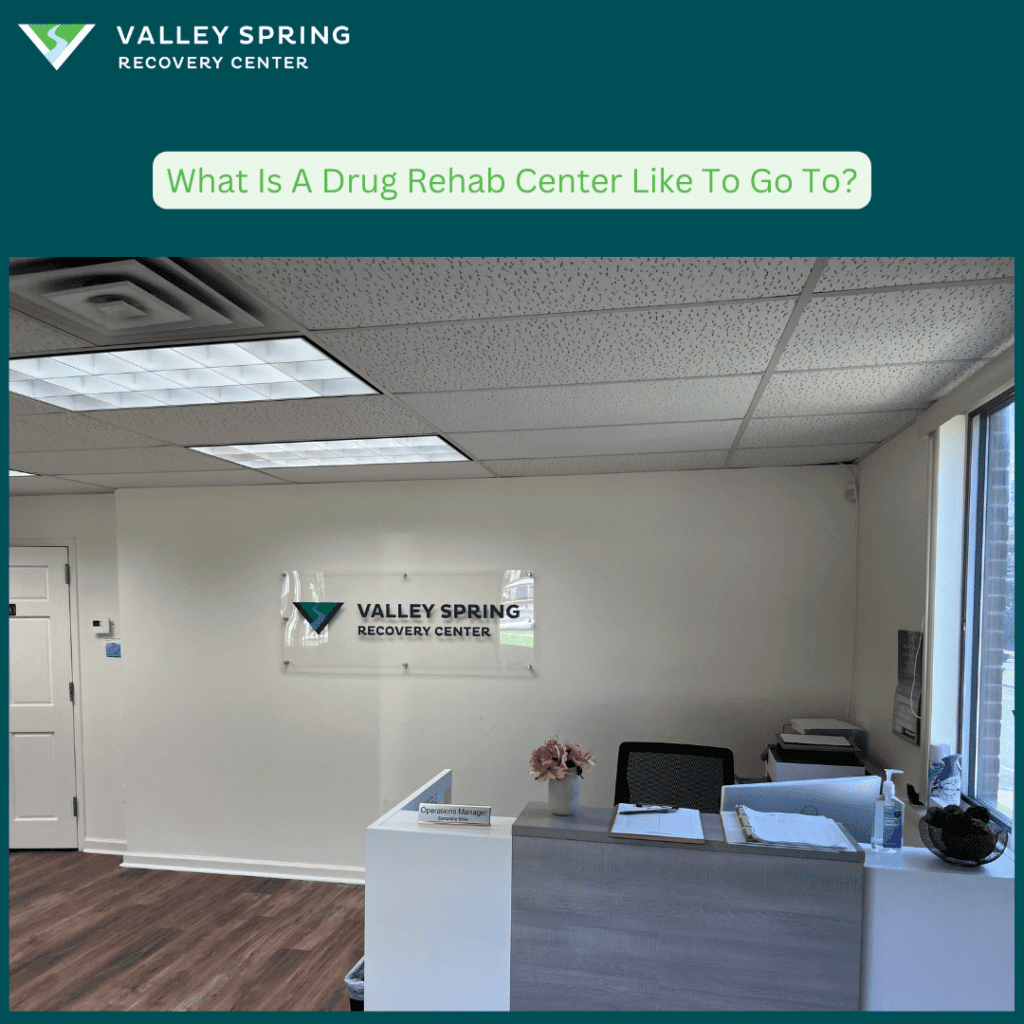
Going to rehab can be an overwhelming experience filled with uncertainty. Generally, the rehab process begins with an assessment, followed by detoxification, therapy sessions, and finally, aftercare. Each phase is designed to tackle different facets of addiction, from the physical to the psychological, equipping you with the tools you need for long-term sobriety. These facilities typically offer a range of features and services to support the recovery process from initial detoxification to aftercare.
The key features found in drug rehab centers are displayed below.
1. Structured Treatment Programs
Rehab centers offer structured treatment programs tailored to the needs of each individual. These programs are based on clinical evidence and typically include a combination of behavioral therapies, counseling, group sessions, and educational workshops. Treatment plans may vary in duration and intensity, depending on the severity of the addiction and the individual’s specific needs.
2. Medical Detoxification
Many drug rehab centers provide medically supervised detox programs designed to safely manage withdrawal symptoms associated with stopping drug use. Medical staff, including doctors and nurses, are available to monitor health conditions, administer medications to ease withdrawal symptoms, and ensure the patient’s safety throughout the detox process.
3. Therapeutic Approaches
A variety of therapeutic approaches are used in drug rehab to address the psychological aspects of addiction. Common therapies include:
- Cognitive Behavioral Therapy (CBT): Helps patients identify and change negative thinking patterns and behaviors.
- Motivational Interviewing (MI): Encourages intrinsic motivation to change behavior.
- Family Therapy: Involves family members in the treatment process to improve communication and resolve conflicts.
- Group Therapy: Provides peer support and helps individuals learn from the experiences of others in recovery.
4. Dual Diagnosis Support
Many individuals with substance use disorders also suffer from co-occurring mental health disorders such as depression, anxiety, or PTSD. Drug rehab centers often provide dual diagnosis treatment, which addresses both the substance use disorder and the co-occurring mental health condition simultaneously.
5. Medication-Assisted Treatment (MAT)
MAT involves the use of FDA-approved medications in combination with counseling and behavioral therapies to treat substance use disorders. Medications are used to normalize brain chemistry, block the euphoric effects of alcohol and drugs, relieve physiological cravings, and manage withdrawal symptoms.
6. Aftercare and Relapse Prevention
Effective drug rehabs offer comprehensive aftercare programs to prevent relapse and support ongoing recovery after the initial treatment phase. These programs may include ongoing counseling, support groups, and other community-based resources.
7. Holistic Therapies
In addition to traditional therapies, many rehab centers incorporate holistic approaches that support overall well-being. These may include yoga, meditation, art therapy, and nutritional counseling, which help improve mental, physical, and emotional health.
8. Amenities
To make the recovery process as comfortable as possible, rehab centers may offer various amenities such as private rooms, recreational facilities, fitness centers, and gourmet meals. The level of amenities can vary significantly between facilities, with some offering luxury accommodations.
9. Education and Skills Training
Education sessions on the nature of addiction, its effects on the brain and body, and strategies for maintaining sobriety are commonly offered. Some rehabs also provide vocational training or skills development to help individuals prepare for life after rehab.
These features make drug rehab centers equipped to address the complex nature of addiction and provide individuals with the tools and support necessary for effective recovery.
What Are The Drug Rehab Levels of Care and Intensity?

The levels of care in drug rehab, defined by the American Society of Addiction Medicine (ASAM), range from early intervention services to medically managed intensive inpatient services, tailored to meet the specific needs of individuals at different stages of addiction recovery. This system ensures that patients receive the appropriate intensity and type of treatment, from medical detox to outpatient support, based on a comprehensive assessment including ASAM guidelines and the DSM manual, aiming for long-term sobriety.
The American Society of Addiction Medicine (ASAM) has established five main levels in a continuum of care for substance abuse treatment:
- Level 0.5: Early intervention services
- Level I: Outpatient services
- Level II: Intensive outpatient/Partial hospitalization services (Level II is subdivided into levels II.1 and II.5)
- Level III: Residential/Inpatient services (Level III is subdivided into levels III.1, III.3, III.5, and III.7)
- Level IV: Medically managed intensive inpatient services. This is most commonly known as detox.
The level of care is determined after a comprehensive assessment and may include varying degrees of medical intervention, psychotherapy, and support. Levels of care range from detoxification services, which are often medically managed and may require hospitalization, to residential or inpatient programs, partial hospitalization programs (PHP), intensive outpatient programs (IOP), and standard outpatient services. Each level offers a different intensity of service and is designed to treat addiction with a tailored approach, aiming to provide the patient with the necessary tools to achieve long-term sobriety.
Navigating the landscape of addiction treatment can be complex, but understanding the various levels of care is crucial for anyone seeking help. The tiers of treatment for drug and alcohol addiction range from highly intensive medical detox to lower-intensity outpatient programs, each tailored to the needs of the patient at a particular stage in their recovery. The most effective method to determine what you need is through a comprehensive assessment and placement into a program based on the Diagnostic and Statistical Manual of Mental Disorders (DSM-5-TR) the standard classification of mental disorders used by mental health professionals in the United States. The DSM guidelines help clinicians evaluate a patient’s mental and physical state, readiness for change, and specific treatment needs.
After undergoing an assessment based on ASAM guidelines and the DSM manual, patients receive personalized treatment recommendations. The evaluative criteria often include factors such as the severity of substance misuse, co-occurring mental health conditions, medical complications, and the individual’s social environment, among others. The depth of this assessment ensures that individuals are placed in a program that optimally aligns with their current state and goals for recovery, thereby maximizing the chances for long-term sobriety and well-being.
Different stages of recovery require different levels of care which are listed below based on ASAM guidelines.
Inpatient Rehab
Inpatient rehab centers provide an intensive treatment experience where patients reside at the facility. This type of rehab is characterized by:
- 24/7 Medical Care and Supervision: Patients have constant access to medical professionals and support staff, which is crucial for those undergoing withdrawal or with severe addiction issues.
- Environment Free from Triggers: By staying at the facility, patients are removed from the environments and contexts that may trigger their substance use, helping to prevent relapse during a vulnerable phase of recovery.
- Structured Program: The daily schedule in inpatient rehab is highly structured, encompassing various therapeutic activities, counseling sessions, and physical care, all designed to foster recovery in a holistic manner.
Inpatient rehab includes medical detox and residential rehab, for more severe cases with medical comorbidities a hospital setting may be appropriate.
Medical Detox:
The journey to recovery often begins with medical detox, a crucial phase where the body is cleansed of substances under strict medical supervision. This phase is essential for achieving physical stabilization and ensuring safety, as withdrawal can be life-threatening depending on the substance and the severity of dependence. Healthcare professionals utilize established medical protocols to manage withdrawal symptoms effectively.
Inpatient Rehabilitation:
Following detox, patients may transition to an inpatient rehab facility that provides round-the-clock medical care within a structured environment. This setting is critical for individuals who need intensive treatment and support. The therapeutic approach in inpatient rehab typically includes a combination of individual and group therapies, educational workshops about addiction and recovery, and holistic practices like meditation and yoga to support overall well-being. Facilities may vary in terms of amenities and the types of therapy offered, aiming to create a supportive, healing environment.
Outpatient Rehab
Outpatient rehab centers offer a more flexible treatment model that allows individuals to live at home while attending treatment sessions at the center. Key features include:
- Flexible Scheduling: Patients can maintain their regular commitments such as work, school, or family responsibilities and attend treatment sessions scheduled around their availability, typically during evenings or weekends.
- Less Intensive Care: While outpatient programs provide professional support and therapy, they do not offer round-the-clock supervision. This model relies more heavily on the individual’s ability to manage their recovery with external support.
- Community Integration: Outpatient treatment enables individuals to apply the coping strategies they learn in real-time, within their normal daily environments, which can be an effective way of testing and strengthening their ability to stay sober in the real world.
The American Society of Addiction Medicine (ASAM) outlines that outpatient treatment involves four stages:
- Stage 1 – Treatment Engagement: Focusing on involving the patient actively in their treatment plan.
- Stage 2 – Early Recovery: Helping patients develop skills and supports necessary for ongoing sobriety.
- Stage 3 – Maintenance: Patients continue to build on their early recovery work and prevent relapse.
- Stage 4 – Community Support: Transitioning patients to community support resources to bolster long-term recovery.
Outpatient treatment is ideal for individuals with milder forms of addiction, a strong support network, and the self-discipline to participate in treatment while continuing with their day-to-day lives. It’s also often used as a step-down from inpatient treatment, helping individuals transition back into the community. The different levels of care within outpatient rehab include PHP, IOP and OP.
Partial Hospitalization Programs (PHP):
PHP acts as an intermediary step between inpatient care and less intensive outpatient settings. It offers structured treatment similar to inpatient care but allows patients to go home each day. This program is suited for patients who require consistent medical monitoring but have a stable living situation. Treatment in PHP includes comprehensive therapy sessions—both individual and group—and continuous medical supervision.
Intensive Outpatient Programs (IOP):
Intensive Outpatient Programs (IOP) offer a structured treatment approach while allowing individuals to live at home and maintain major lifestyle commitments such as work, school, or family responsibilities. This level of care is designed for those who need more support than standard outpatient treatment (OP) but less than what is provided in Partial Hospitalization Programs (PHP).
Key Features:
- Increased Treatment Hours: Patients typically attend treatment sessions for 10-20 hours per week, which can be scheduled during evenings or weekends to accommodate daily responsibilities.
- Comprehensive Therapy: IOP includes a mix of individual counseling, group therapy, and educational workshops that address both the psychological and physical aspects of addiction.
- Support System Integration: By continuing to live at home, patients can directly apply the recovery skills learned in therapy to their everyday environments, which supports real-world sobriety maintenance.
IOP is suitable for individuals with a stable living situation and a moderate level of addiction. It offers a balance between intensive care and the flexibility to engage in daily life, making it a valuable option for those transitioning from more intensive care levels or for whom daily commitments are integral to their livelihood and well-being.
Standard Outpatient Treatment (OP)
Standard Outpatient Programs (OP) provide the least intensive level of care among outpatient settings, designed for individuals who need ongoing support but have a strong ability to maintain sobriety with minimal supervision.
Key Features:
- Flexible Scheduling: Treatment typically requires attendance at therapy sessions for fewer than 10 hours per week, allowing patients to fully engage in their personal and professional lives.
- Focused Therapy Sessions: OP includes scheduled individual and group therapy that emphasizes maintaining recovery and applying coping strategies in everyday situations.
- Continued Support: Patients have access to professional guidance while actively engaging in their community, work, and family activities.
Like IOP, the treatment in standard outpatient settings follows the stages outlined by ASAM, focusing on long-term sobriety and community integration.
OP is ideal for individuals with mild addiction issues or those transitioning from more intensive treatment programs. It supports those who have a strong personal support system and the motivation to pursue recovery with more autonomy.
What Is The Difference Between Inpatient Rehab and Outpatient Rehab?
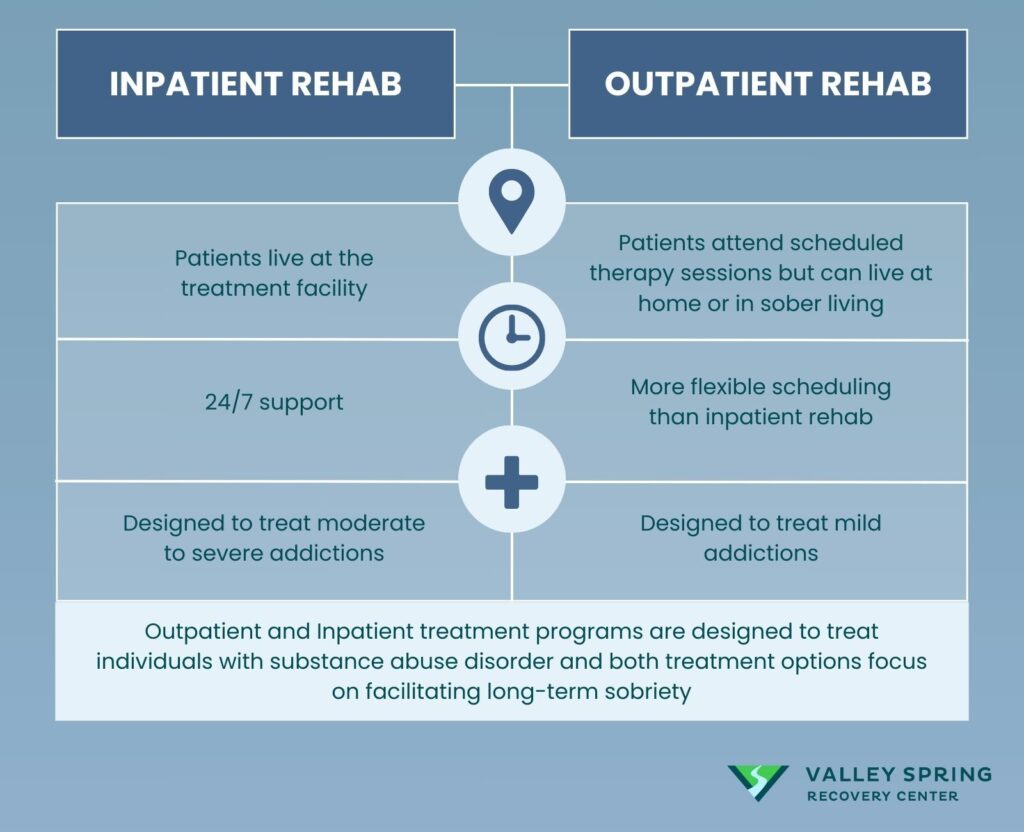
The primary difference between inpatient and outpatient rehab centers lies in the intensity and setting of the care provided, which significantly influences the appropriate treatment approach for individuals based on the severity of their addiction and their personal circumstances.
Both inpatient and outpatient treatments are effective approaches within substance use disorder rehabilitation, and the choice between them should be made based on individual needs, severity of addiction, support systems, and personal responsibilities. Each type of rehab aims to provide the tools and support necessary for individuals to achieve and maintain sobriety, albeit through different means and settings.
What Is The Difference Between IOP and OP?
Both IOP and OP are critical components of the continuum of care in addiction treatment, offering different levels of support and structure to meet the diverse needs of individuals at various stages of recovery. These programs allow for treatment continuity in a less restrictive environment, promoting long-term recovery success.
How do sober living homes work collaboratively with rehab centers and what is the difference?
Sober living homes and rehab centers serve complementary roles in the continuum of care for individuals recovering from addiction, but they operate in distinct ways.
Rehab Centers: Rehab centers provide intensive treatment for addiction, including medical detox, therapy, and counseling in a structured environment. These centers are designed to address the acute phase of recovery, helping individuals to stop using substances and begin the process of healing. Treatment at these facilities is typically comprehensive and can be offered in various forms such as inpatient (where individuals reside at the facility), outpatient (where individuals attend treatment sessions but live at home), or partial hospitalization programs (which provide intensive day treatment). Rehab centers focus heavily on the initial stages of sobriety and provide the tools necessary to manage addiction.
Sober Living Homes: After completing a program at a rehab center, individuals often transition to a sober living home, which serves as an intermediate step back to normal life. These homes provide a supportive, substance-free environment where residents can continue to practice the skills learned in rehab. Residents usually share responsibilities and chores, and are often required to follow certain rules such as maintaining sobriety, attending meetings or therapy sessions, and participating in house meetings. The goal of sober living homes is to bridge the gap between the intensive treatment provided at rehab centers and the return to everyday life, offering residents a supportive community and ongoing structure to help prevent relapse.
Collaboration between Rehab Centers and Sober Living Homes: Rehab centers and sober living homes often work closely to provide a seamless transition for individuals in recovery. This collaborative approach typically involves:
- Referrals: Rehab centers may refer individuals to sober living homes as part of a discharge plan, ensuring they continue to receive support after completing a rehab program.
- Continued Therapy and Treatment: Individuals in sober living may continue to attend outpatient therapy or counseling sessions initiated at the rehab center.
- Support Networks: Both settings encourage participation in community support groups such as Alcoholics Anonymous or Narcotics Anonymous, providing a consistent framework of support.
The primary difference between the two is in the level of care and structure. Rehab centers provide intensive, medically supervised treatment, while sober living homes offer a less restrictive environment that still supports recovery but allows for more personal autonomy. Together, they create a comprehensive approach to recovery, addressing both the immediate and long-term needs of individuals overcoming addiction.
Are there differences in the availability of inpatient versus outpatient services across the United States?
There is a varied distribution of inpatient and outpatient services across different states and regions. While outpatient services are universally more common, inpatient facilities are also widely available but may be concentrated in areas with higher population densities or specific regional health needs.
What is a Holistic Drug Rehab Center?
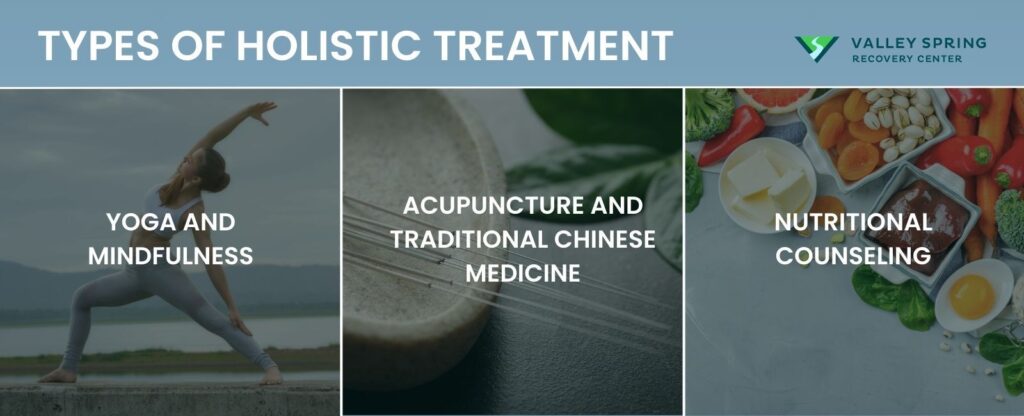
A Holistic addiction treatment center addresses the entire person including the underlying symptoms and causes that lead to addiction as well as physical health. Some rehab centers focus their curriculum on holistic treatment methods including:
yoga and mindfulness: Holistic addiction treatment often incorporates yoga and mindfulness as tools for achieving mental clarity and physical strength. These practices aim to bring awareness to the present moment, helping individuals better understand their cravings and emotional triggers.
Acupuncture and Traditional Chinese Medicine: Holistic treatments may also offer acupuncture and traditional Chinese medicine as adjunct therapies. These treatments aim to balance the body’s chi (energy), which is believed to contribute to wellness on both physical and mental levels.
Nutritional Counseling: A balanced diet can have a significant impact on a person’s journey to sobriety. Holistic addiction treatment often includes nutritional counseling to ensure that individuals are receiving the vitamins and nutrients needed to support recovery.
What Is an Experiential Rehab Center?
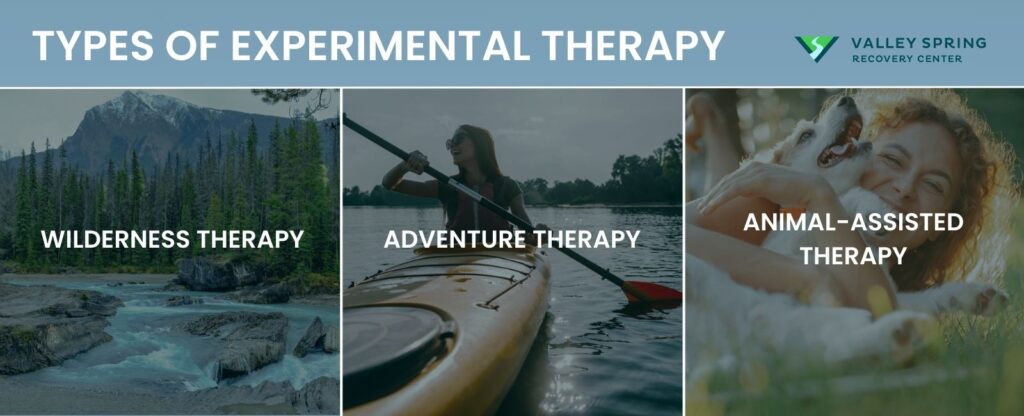
Experiential therapy is an action-oriented psychotherapy that helps patients address subconscious issues through activities like role-playing, guided imagery, and recreation. By engaging in real-world experiences, participants gain deeper emotional insight and develop coping mechanisms, facilitating holistic healing. Many drug rehab centers focus their curriculum around experiential therapies including:
Wilderness Therapy: One of the most immersive forms of experiential treatment is wilderness therapy. This involves taking individuals into nature, away from the distractions and triggers of their regular environment. Here, they engage in survival skills training, hiking, and other outdoor activities to foster resilience and teamwork.
Adventure Therapy: Similar to wilderness therapy but less intense, adventure therapy involves outdoor activities like rock climbing, kayaking, and ropes courses. It combines physical activity with cognitive-behavioral therapy, aiming to bring about change through action.
Animal-Assisted Therapy: Experiential treatments can also include animal-assisted therapy, where the act of caring for an animal helps individuals develop empathy, responsibility, and a sense of purpose—qualities often eroded by addiction.
Are there specialized rehab centers for certain types of drug addictions?
Yes, many rehab centers specialize in treating specific drug addictions. These centers offer tailored programs and therapies targeting the unique challenges and withdrawal symptoms associated with particular substances. Examples include centers for opioid addiction, alcoholism, or methamphetamine addiction.
Are There Specialized Programs for Specific Groups, like Veterans or Young Adults?
Yes, there are numerous specialized addiction treatment programs tailored to specific groups. Veterans, for example, often face unique stressors, including PTSD, that can lead to substance abuse. Specialized treatment centers for veterans focus on trauma-informed care and offer resources like vocational training and housing assistance. Young adults and students, another vulnerable group, may benefit from rehab programs that provide educational support alongside addiction treatment. These specialized programs incorporate therapies and support systems that address the unique challenges faced by these populations, making them an essential part of the broader addiction treatment landscape.
What Are The Different Types Of Therapies That Occur in A Rehab Center?
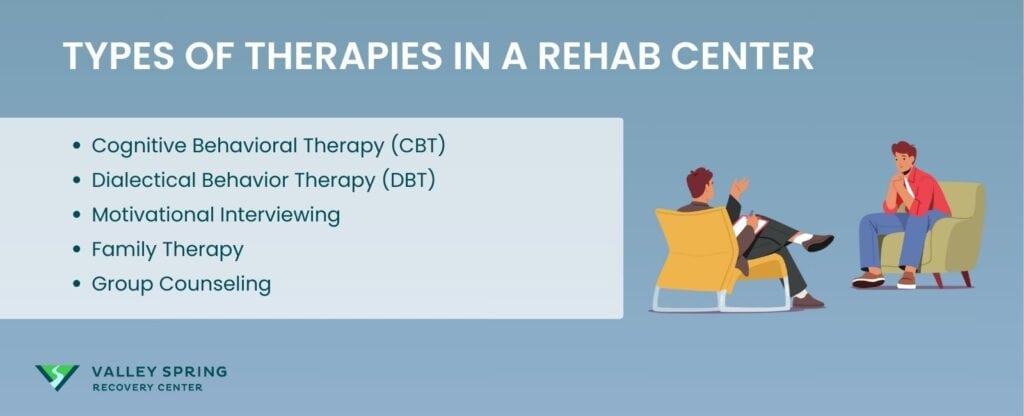
Evidence-based therapy is a cornerstone of effective treatment, and various modalities can be employed based on individual needs.
- Cognitive Behavioral Therapy (CBT)
- Dialectical Behavior Therapy (DBT)
- Motivational Interviewing
- Family Therapy
- Group Counseling
- Medication Assisted Treatment (MAT)
Evidence-based treatments often start with Cognitive Behavioral Therapy (CBT), a short-term, goal-oriented psychotherapy treatment that takes a hands-on, practical approach to problem-solving. It aims to change patterns of thinking or behavior that contribute to addiction, making it particularly effective for substance abuse and co-occurring disorders like anxiety or depression.
Medication-assisted treatment (MAT) is a cornerstone in evidence-based treatment. This combines behavioral therapy and medications to treat substance use disorders. MAT is mainly used for opioid, alcohol, and nicotine addiction, and it has been proven to improve patient survival rates and increase retention in treatment programs.
A form of CBT, Dialectical Behavior Therapy (DBT) focuses on providing therapeutic skills in four key areas: mindfulness, distress tolerance, emotion regulation, and interpersonal effectiveness. It’s often used for individuals who have difficulty in emotional situations and is particularly effective for treating borderline personality disorder along with substance abuse.
How Many Drug Rehab Centers Are There In The United States?
Based on the most recent data from the 2022 National Substance Use and Mental Health Services Survey (N-SUMHSS), the United States hosts approximately 21,160 treatment facilities that offer services for substance use disorders, mental health issues, or both. This total includes 14,854 facilities that provide substance use treatment, 9,586 that offer mental health treatment, and 3,280 facilities that provide both types of services.
What Is The Number Of Treatment Centers By Organization Type?
In the 2022 N-SUMHSS report included 9,586 mental health and Substance Use Disorder treatment facilities and reported a total of 1,798,357 clients in treatment on March 31, 2022. The survey response rate was 72.1 percent overall and the results are listed below.
- Private Non-Profit Organizations: The majority of drug rehab facilities, about 62.2%, operate as private non-profit organizations. These centers often rely on funding from donations, grants, and government sources, allowing them to provide services at a reduced cost or on a sliding scale basis.
- Private For-Profit Organizations: Representing 19.1% of the total, these facilities operate commercially and are funded through service fees paid by clients or their health insurance.
- Government-Operated Centers: These include facilities run by state, local, county, or community governments (6.3%) and federal entities (4.4%), including those specifically for veterans, like VA hospitals.
What Is Rehab Center Capacity and Utilization?
Approximately 1,139 facilities offer residential care where clients live on-site during treatment, with a total of 27,736 clients served and an overall utilization rate of 82.4%. There are 1,055 hospital inpatient facilities providing acute care for severe cases, with a higher utilization rate of 151.9%, indicating a capacity strain, serving 93,156 clients according to the 2020 National Survey of Substance Abuse Treatment Services (N-SSATS).
How Many Rehabs Offer Specialized Services?
Based on the 2022 National Substance Use and Mental Health Services Survey (N-SUMHSS), a significant number of drug rehab facilities offer specialized services catering to various needs and populations. This detailed survey provides a broader scope of how these specialized services are integrated into the fabric of addiction treatment in the United States.
- Veterans Affairs Medical Centers (VAMC): These facilities form part of the federal government’s network, specifically serving military veterans, constituting about 4.1% of all rehab facilities as highlighted in the 2022 N-SUMHSS report.
- Community Mental Health Centers (CMHC): Representing 19.1% of facilities, these centers provide a comprehensive range of mental health and substance use treatments, with a strong emphasis on community-based care.
- Dual Diagnosis Treatment: Facilities offering specialized programs for individuals with co-occurring mental and substance use disorders represent 45.7% of all facilities. This significant proportion underscores the recognition of the intertwined nature of mental health and substance abuse issues.
- Other Specialized Services:
- Residential Treatment Centers for Adults and Children: These facilities cater to specific age groups with tailored treatments, making up 7.3% and 4.7% respectively of the treatment landscape.
- Partial Hospitalization/Day Treatment Facilities: Accounting for 3.5% of all facilities, they provide a middle ground between inpatient and outpatient care.
- Outpatient Mental Health Facilities: The most prevalent, making up 36.7% of facilities, these allow patients to receive treatment while living at home.
- Certified Community Behavioral Health Clinics (CCBHC): Making up 5% of facilities, they focus on expanding access to comprehensive mental health and substance use services, particularly in underserved areas.
These specialized services are crucial as they ensure that all individuals—regardless of their specific circumstances or backgrounds—have access to tailored treatment that addresses their unique recovery needs. The prevalence of such specialized programs underscores the commitment of rehab facilities to provide holistic and inclusive treatment approaches.
What types of services are most commonly offered by drug rehab facilities in the United States?
According to the 2020 N-SSATS data and 2022 SAMSHA, the majority of drug rehab facilities offer a combination of counseling services, behavioral therapy, and medication-assisted treatment (MAT). The survey highlights that individual and group counseling is prevalent across most facilities, and there is a significant emphasis on providing holistic treatment approaches that include mental health services alongside substance abuse treatment.
How prevalent is the use of Medication-Assisted Treatment (MAT) in rehab centers?
The 2020 N-SSATS indicates that a substantial percentage of rehab facilities now incorporate MAT into their treatment programs. MAT is used to treat disorders involving opioids, alcohol, and nicotine, among others, with medications such as buprenorphine, methadone, and naltrexone being commonly administered to help manage cravings and withdrawal symptoms, supporting recovery.
How do rehab centers address the needs of individuals with co-occurring mental health and substance use disorders?
According to the 2020 N-SSATS, a large number of rehab facilities are equipped to diagnose and treat co-occurring disorders. These centers use integrated treatment plans that address both mental health issues and substance use, recognizing the complex interplay between these conditions and tailoring their therapies accordingly to improve recovery outcomes.
What is the rehab capital of the world?
Delray Beach, Florida, has been recognized as the “rehab capital of the world.” This designation is largely due to its high concentration of rehabilitation centers and a substantial community of individuals in recovery. The warm climate, alongside a supportive recovery environment, makes it a popular destination for those seeking help with substance abuse issues.

Delray Beach first gained this reputation following a 2007 New York Times article that highlighted its burgeoning recovery community and the proliferation of treatment facilities within the area. Since then, the city has continued to support a vast network of drug rehab centers that offer a range of services from detoxification and residential care to outpatient support and sober living homes. This extensive infrastructure not only provides necessary medical and therapeutic services but also fosters a community-oriented atmosphere conducive to recovery. This makes Delray Beach a unique location for effective substance abuse treatment and long-term recovery support.
What Are The Accreditation and Licensing Bodies For Drug Rehab Centers?
In the United States, drug rehab centers are regulated by a variety of accrediting and licensing bodies that ensure facilities meet stringent standards for healthcare quality and safety. The most widely recognized accrediting organizations are The Joint Commission and the Commission on Accreditation of Rehabilitation Facilities (CARF). These bodies evaluate facilities based on their compliance with national health care standards and best practices in addiction treatment.
In addition to these accrediting organizations, nearly all drug rehab centers are also licensed by state-specific licensing bodies. According to the 2022 National Substance Use and Mental Health Services Survey (N-SUMHSS), 98.2% of facilities are licensed, certified, or accredited by one or more agencies. State licensing agencies play a crucial role in monitoring and enforcing standards within their jurisdictions, often conducting regular inspections and requiring facilities to report on various aspects of their operations and treatment outcomes.
Help Is Right Around The Corner.
Private, Confidential, Evidence-Based Drug Rehab in Northern New Jersey
How Long Does Rehab Last?
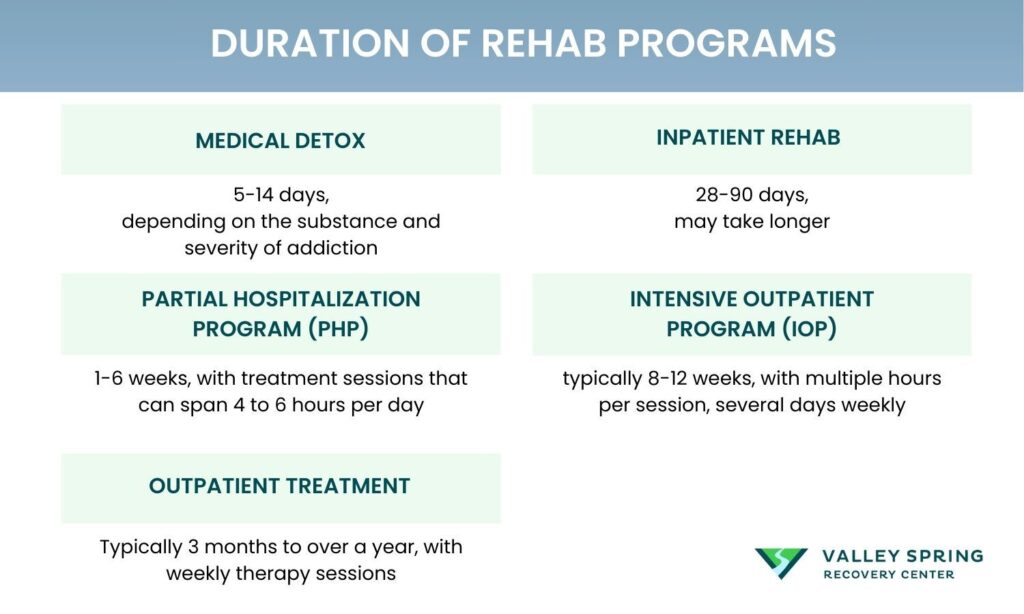
The duration of rehab can vary significantly depending on several factors, including the type of addiction, the presence of any co-occurring mental health disorders, and the specific treatment plan tailored for the individual. Here’s a general breakdown based on different levels of care:
- Medical Detox: Typically lasts between 5 to 14 days, depending on the substance and severity of addiction.
- Inpatient Rehab: Can range from 28 days to 90 days, though long-term residential treatment may extend beyond that period.
- Partial Hospitalization Program (PHP): Generally lasts for 1 to 6 weeks, with treatment sessions that can span 4 to 6 hours per day.
- Intensive Outpatient Program (IOP): This can be variable but often lasts for about 8 to 12 weeks, with sessions spanning a few hours per day, multiple days a week.
- Outpatient Treatment: Varies widely, often ranging from 3 months to over a year, with weekly therapy sessions.
The length of stay in a rehab program varies from person to person and depends on several factors, such as the severity of the addiction, co-occurring mental health disorders, and individual progress. If your wondering how long drug rehab lasts, generally speaking, programs can range from 28 days to 90 days or even longer. Treatment programs are based on each individual’s needs and should be assessed using criteria such as the ASAM guidelines and DSM manual to determine the most suitable treatment duration. Following primary treatment, many individuals also engage in aftercare programs, which can be long-term commitments to help prevent relapse and continue recovery.
Remember, effective treatment is less about the time spent in a program and more about the program’s comprehensiveness and ability to address the unique needs of the individual.
What Does A Rehab Center Typically Cost?
The cost of rehab for drug and alcohol addiction can vary widely depending on several factors, including the type of treatment, the location of the facility, the length of the program, and the amenities offered. Here’s a breakdown of the costs associated with different types of treatment programs:
1. Detox
- Cost Range: $250 to $800 per day. Medical detox typically requires professional monitoring, which can be expensive, especially if medication is involved. It’s common for private luxury detox centers to charge more than $2,500 per day.
2. Inpatient Rehab
- Cost Range: $5,000 to $20,000 for a 30-day program. Luxury facilities can cost up to $30,000 to $50,000 for the same period. Inpatient treatment includes 24/7 care and provides all meals and accommodations.
3. Outpatient Rehab
- Cost Range: $1,000 to $10,000 for the entire program. Outpatient programs can vary in intensity and frequency, influencing the overall cost.
4. Partial Hospitalization Programs (PHP)
- Cost Range: $350 to $450 per day. PHPs provide extensive treatment during the day, but patients do not stay overnight.
5. Intensive Outpatient Programs (IOP)
- Cost Range: $3,000 to $10,000 for an entire treatment cycle, which can last several weeks to months. These programs usually involve multiple sessions per week.
6. Long-term Residential Treatment
- Cost Range: $10,000 to $60,000 for programs lasting 60 to 90 days or more. These provide intensive care in a non-hospital setting.
When planning to attend a substance use disorder treatment program, it’s crucial to explore all financial options to mitigate the cost of drug and alcohol rehab. Many health insurance plans partially cover rehab expenses, including detox, therapy, and medication, although coverage levels vary by plan and provider. For those with limited financial resources, some rehab centers offer sliding scale fees based on the patient’s income, making treatment more accessible. Additionally, scholarships and grants provided by non-profits and charitable organizations can offer significant financial aid specifically for substance abuse treatment. State-funded programs also provide an essential safety net for those without insurance or the means to afford private care, though their quality and availability can differ across states. Individuals are encouraged to consult directly with treatment facilities or speak with their insurance providers to understand the specific coverage and financial assistance options available, ensuring they can access the necessary treatment without undue financial strain.
How Does Insurance Help To Cover The Cost Of Rehab?
Insurance can significantly alleviate the financial burden of rehab by covering a portion of the costs associated with substance abuse treatment. Depending on the specific insurance policy and the treatment center, insurance coverage can include a range of services such as detoxification, inpatient and outpatient treatment, medication-assisted therapy, and counseling. To utilize insurance for rehab, it’s essential to verify insurance coverage details with your insurance provider, understand the extent of what is covered, any co-pays or deductibles involved, and ensure the treatment facility is within your insurance network. This process helps in making informed decisions about accessing and financing the necessary treatment for recovery.
What is a luxury rehab center?

A luxury rehab center is a type of rehabilitation facility that offers upscale amenities and services, often in a serene and picturesque setting, designed to provide a comfortable and exclusive treatment experience for individuals recovering from addiction. These centers cater to clients who seek a higher standard of comfort and privacy, similar to what one might expect from a luxury resort or a high-end hotel.
Key Features of Luxury Rehab Centers:
- Premier Locations: Luxury rehabs are typically situated in beautiful and tranquil environments such as beachfront properties, secluded mountains, or other scenic locations that promote relaxation and reflection.
- Enhanced Privacy: These facilities often offer private rooms or suites with high-end furnishings and amenities, ensuring that clients have a private and comfortable space to recover.
- Personalized Care: Luxury rehabs tend to have a higher staff-to-client ratio, allowing for more personalized attention and customized treatment plans that cater to the individual needs and preferences of each client.
- Holistic Treatment Options: Beyond traditional therapies, luxury rehab centers often incorporate a wide range of holistic treatments such as yoga, meditation, massage therapy, acupuncture, and gourmet nutrition plans, all aimed at healing the whole person—body, mind, and spirit.
- Recreational Facilities and Activities: These centers provide access to a variety of recreational facilities and activities, including swimming pools, fitness centers, art studios, and opportunities for outdoor sports, which help clients to relax and stay physically active during their recovery.
- High-Level Confidentiality: Understanding the needs of their clientele, luxury rehabs adhere to strict confidentiality and privacy policies to protect the identities and personal information of their clients.
Luxury rehab centers are designed not just to provide effective treatment but to do so in a setting that can ease the stress of recovery, offering a soothing environment that supports healing. They are particularly popular among celebrities, executives, and high-net-worth individuals who are accustomed to a certain lifestyle and are not concerned by the cost, but they are open to anyone looking for a more refined rehab experience.
What Happens After Rehab?
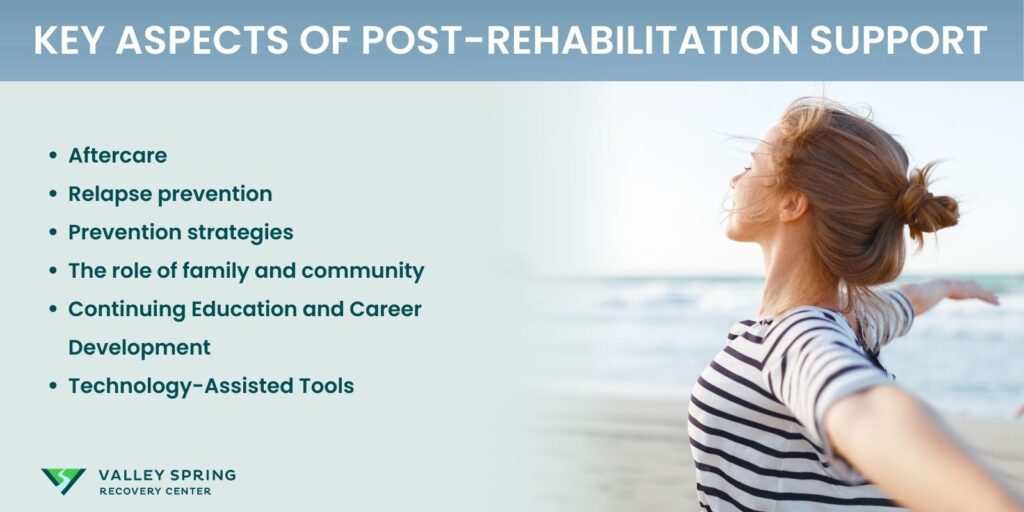
Successfully completing a drug rehab program is a significant milestone, but it’s essential to understand that recovery is an ongoing process. Aftercare and relapse prevention strategies are critical components for maintaining sobriety and leading a healthier life long-term. Without a well-defined aftercare plan, the risk of relapse increases significantly.
Aftercare typically involves a variety of services and interventions designed to continue supporting you after you’ve completed more intensive treatment. This can include outpatient counseling, group therapy, mentorship programs, and even job placement services. Some aftercare programs may also provide ongoing medical support for individuals who require long-term medication as part of their recovery plan. Telehealth is increasingly used to make aftercare more accessible, allowing patients to receive ongoing care from the comfort of their homes.
Relapse prevention begins by identifying triggers and high-risk situations that could lead to substance use. Triggers can be emotional, environmental, or social. One of the most important tips for staying sober is understanding emotional triggers can include feelings like stress, sadness, or boredom, while environmental triggers might be places or things associated with drug or alcohol use. Social triggers are people or social situations that encourage or normalize substance abuse.
Prevention strategies often involve cognitive-behavioral techniques that help you identify negative thought patterns and replace them with healthier coping mechanisms. Mindfulness and stress management are also common techniques taught to help manage triggers effectively. Many people find that engaging in regular physical activity can also be a powerful tool for relapse prevention.
The role of family and community in aftercare and relapse prevention cannot be overstated. Emotional and logistical support from loved ones can make a significant difference in one’s ability to stay sober. Many people also benefit from community-based support groups like Alcoholics Anonymous (AA) or Narcotics Anonymous (NA).
Continuing Education and Career Development: Maintaining a stable, fulfilling life can deter the temptations that lead to relapse. As part of aftercare, some programs offer educational support and career development services. Helping individuals build a new, substance-free life can be one of the most effective ways to prevent relapse over the long term.
Technology-Assisted Tools: Apps and online platforms offer new avenues for aftercare and relapse prevention. These technologies can provide around-the-clock support, helping you track your progress, and can sometimes connect you with a community or professionals when you need immediate help.
How do drug rehab centers handle relapses and ensure long-term recovery?
Relapse is often considered a part of the recovery journey. Rehab centers address it by refining the treatment plan, reinforcing coping skills, and offering intensive counseling. To ensure long-term recovery, many centers provide aftercare programs, support groups, and ongoing therapy sessions.
What is the Importance of Aftercare Following Rehab?
The aftercare phase is often considered the crux of sustained recovery and relapse prevention. Many assume that completing a rehab program is the final step, but recovery is a lifelong process that requires ongoing effort. Aftercare programs provide a variety of services like outpatient counseling, vocational training, and alumni programs. These services are designed to offer the continued support needed to help individuals navigate the challenges that come with reentering society after treatment. Failure to engage in a structured aftercare program can lead to a higher risk of relapse.
frequently asked questions (FAQs) about Drug And Alcohol Rehab
What is the Role of Medication-Assisted Treatment (MAT) in Drug Rehab?
Medication-Assisted Treatment (MAT) is increasingly becoming a cornerstone in the comprehensive approach to treating addiction. It is often used in conjunction with behavioral therapies and aftercare services to provide a holistic treatment regimen. MAT uses medications such as methadone, buprenorphine, or naltrexone to reduce cravings and withdrawal symptoms, thereby increasing the chances of long-term recovery. These medications are often introduced during the Medical Detox phase and can continue into Outpatient Treatment settings, making them a consistent element throughout different levels of care. It’s essential to consult a healthcare provider who can assess your specific needs and provide a tailored treatment plan that may include MAT.
How Do Co-Occurring Disorders Get Treated In A Rehab Center?
Co-occurring disorders, often known as dual diagnosis, refer to the simultaneous presence of a mental health disorder and a substance use disorder. This relationship is complex and often requires specialized treatment that addresses both conditions concurrently. Standard drug rehab programs may not be equipped to handle the intricacies of co-occurring disorders, which is why specialized treatment centers offer integrated therapies like Cognitive Behavioral Therapy (CBT) and Dialectical Behavior Therapy (DBT) along with standard addiction therapies. Understanding the underlying mental health condition is crucial in formulating an effective treatment strategy, making an initial comprehensive assessment based on ASAM guidelines and the DSM manual imperative.
Do Rehab Centers Involve The Family?
Family dynamics can play a significant role in both the development and treatment of addiction. Many rehab centers now offer family therapy sessions as part of their comprehensive care model. These sessions help family members understand the complexities of addiction and equip them with strategies to support their loved ones during and after treatment. Family involvement can be critical in establishing a supportive home environment, which is a key component in relapse prevention. Families can also benefit from community support groups designed specifically for loved ones of individuals dealing with addiction.
What Are The Success Rates of Drug Rehab Centers?
The success rates of rehab are determined based on the tracking of multiple quality-of-life indicators. If we look at abstinence as the only success metric, there is a high level of success when measured over a 30-day period after graduation from a program. According to the Butler Center for Research at Hazelden Betty Ford Foundation, nearly 89% of all those completing alcohol treatment remain sober for the first month after rehab. Rehab success rates for those who enter detox before treatment is 68%. Unfortunately, a recent SAMHSA less than 42% of the individuals who enter treatment for drug and alcohol use complete it. Alcohol is a major problem in the United States and only about one-third attempt to quit drinking each year. Of those, only about 25% are successful at reducing their alcohol intake for more than a year. (Translational Psychiatry)
What is the food like in rehab?
The food in rehab facilities can range from basic, nutritious meals to gourmet dining experiences, depending on the facility’s focus and budget. Some centers offer cafeteria-style settings with balanced meals, while luxury rehabs may better food and fine dining options. Holistic centers often emphasize natural, organic foods and may offer specialized diets. Customized nutritional plans for specific medical needs are also available in some facilities. Regardless of the type, most rehabs accommodate allergies and dietary restrictions and aim to make nutrition a part of the recovery process.
How can you find the best rehab center for you or your loved one?
Finding the best rehab includes the center’s approach to treatment, types of therapies offered, staff credentials, patient-to-staff ratio, and patient testimonials. Additionally, one should consider location, duration of programs, cost, and whether the center offers post-treatment support.
How Much Will Insurance Pay For Rehab?
Insurance coverage for rehab varies depending on the insurance provider and the specific policy. Many insurance plans do cover some or all of the costs associated with rehab treatment. It’s essential to consult with your insurance company to determine the extent of coverage.
Help Is Right Around The Corner.
Private, Confidential, Evidence-Based Drug Rehab in Northern New Jersey
Sources
-
National Center for Biotechnology Information. (Year). Title of the book. Retrieved from https://www.ncbi.nlm.nih.gov/books/NBK64088/
-
American Psychiatric Association. (Year). Diagnostic and Statistical Manual of Mental Disorders (Edition). Retrieved from https://www.psychiatry.org/psychiatrists/practice/dsm/
- Substance Abuse and Mental Health Services Administration. (2019). Treatment Episode Data Set (TEDS): Admissions to Discharges From Publicly Funded Substance Use Treatment.
- Kinreich, Sivan et al. (March 2021). Predicting alcohol use disorder remission: a longitudinal multimodal multi-featured machine learning approach. Translational Psychiatry, 11(1), 166.
Dr. Michael Olla
All author postsShare This Post

